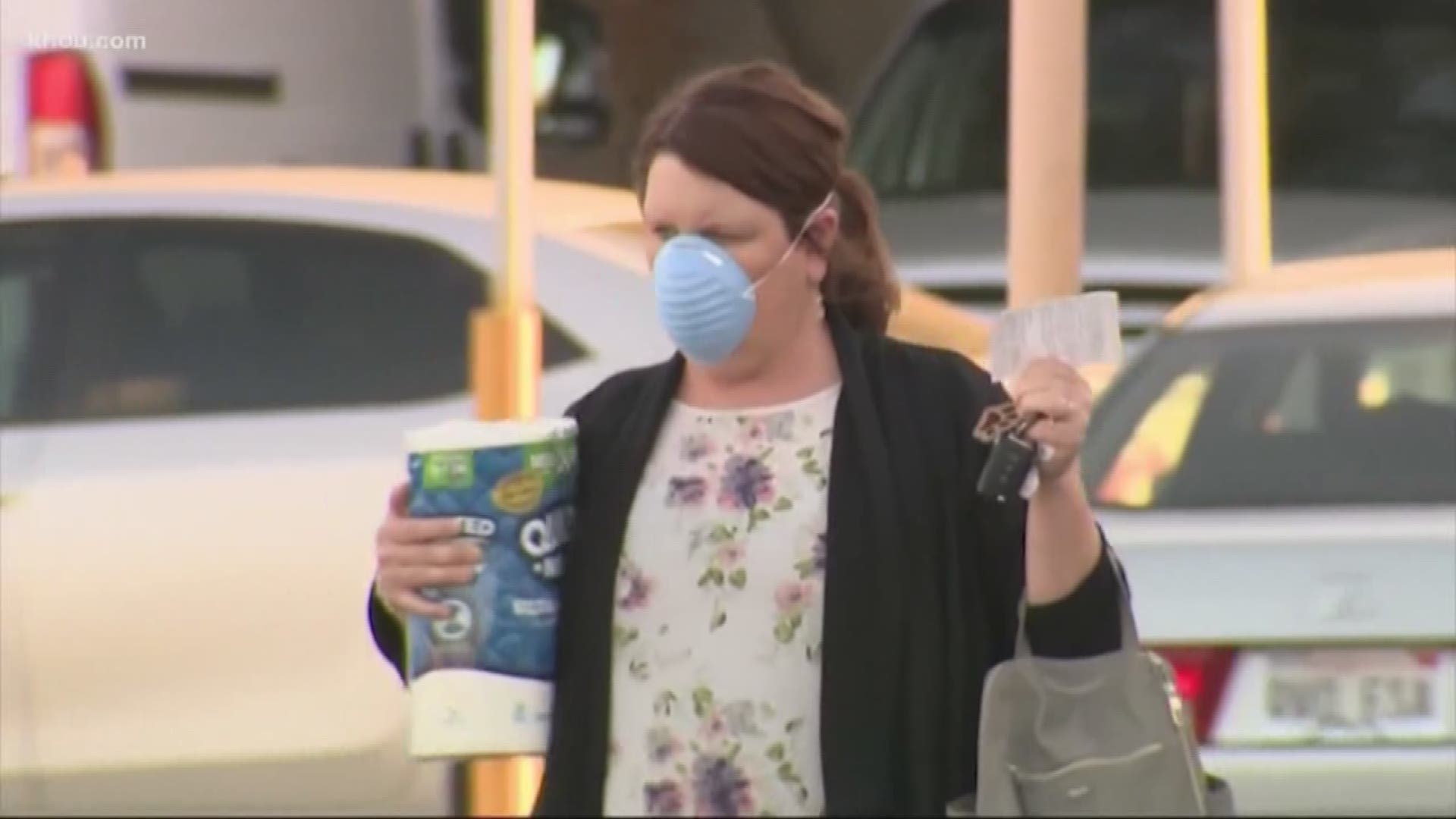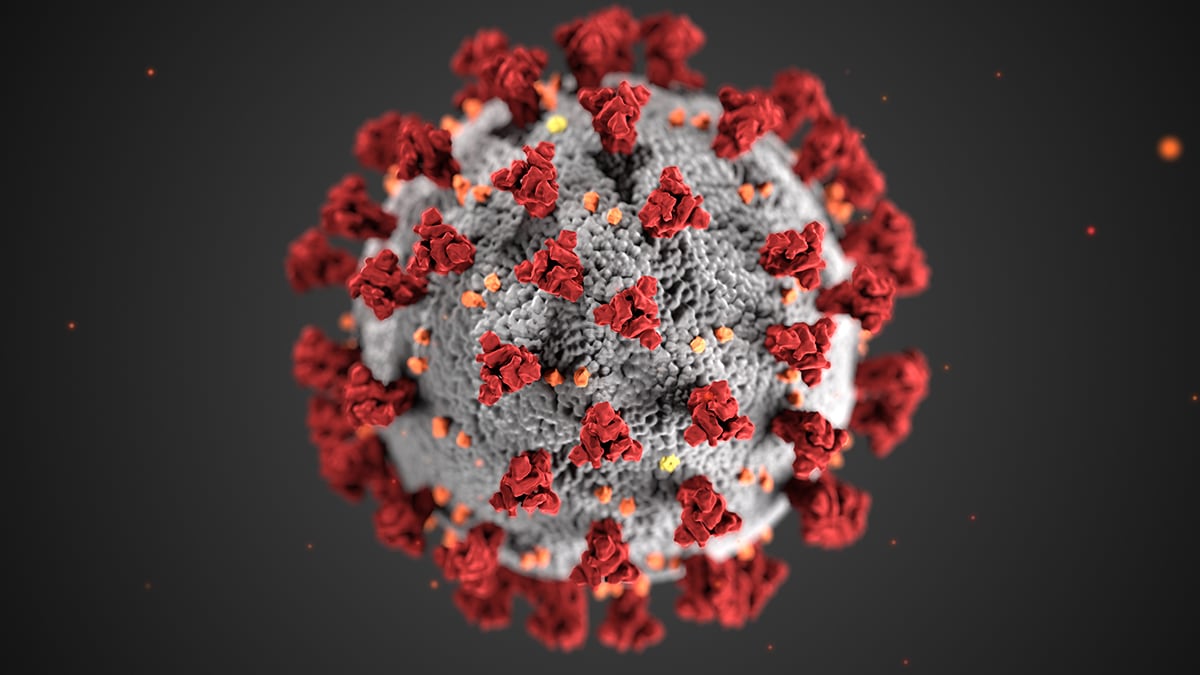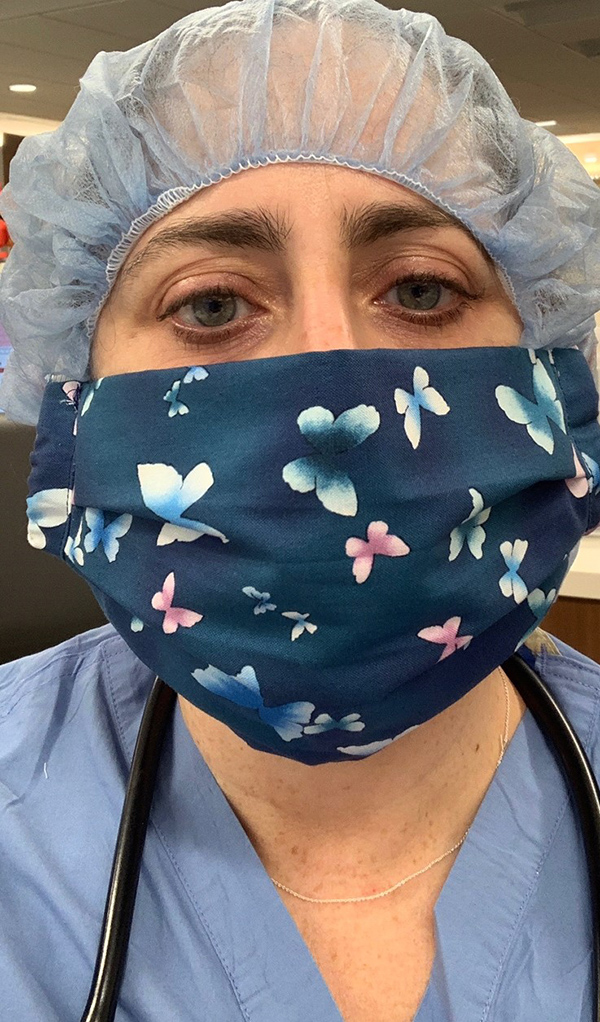HOUSTON — It’s become the new norm to see more and more people out in public wearing a mask. With the coronavirus pandemic quickly spreading, CDC officials are now recommending people wear cloth masks in public areas to help slow the spread of COVID19.
“This is to protect everyone around you to prevent your droplets from getting out there and protect you from breathing in any droplets from getting in,” said Dr. Hillary Fairbrother, an emergency medicine physician at UTHealth.
Dr. Fairbrother said there are a few tips for people to follow who have never worn a mask. The most important thing is not touch the outside of the mask.
“You need to think of the outside of the mask as dirty, and if you do touch it, you need to wash your hands,” Dr. Fairbrother said.
Dr Fairbrother recommends you keep the mask on when you are out and leave it on until you get home.
“I take the mask off and drop it in the washing machine. You don’t want to lay it on the kitchen counter. We are now going to consider that dirty. You don’t want to contaminate your house, your car or anything like that,” Dr. Fairbrother said.
She also suggests people make masks out cotton and not synthetic fibers.
Also, sure the mask is never touching your lips. But most importantly, wearing a mask does not mean you can go visit with people.
“It’s very important that we don’t use the mask as an excuse to stop social distancing,” Dr. Fairbrother said.
For more details you can read the CDC’s guidelines here:
Or you can read UT Health article here:
Coronavirus symptoms
The symptoms of coronavirus can be similar to the flu or a bad cold. Symptoms include a fever, cough and shortness of breath, according to the Centers for Disease Control. Some patients also have nausea, body aches, headaches and stomach issues. Losing your sense of taste and/or smell can also be an early warning sign.
Most healthy people will have mild symptoms. A study of more than 72,000 patients by the Centers for Disease Control in China showed 80 percent of the cases there were mild.
But infections can cause pneumonia, severe acute respiratory syndrome, kidney failure and even death, according to the World Health Organization. Older people with underlying health conditions are most at risk for becoming seriously ill. However, U.S. experts are seeing a significant number of younger people being hospitalized, including some in ICU.
The CDC believes symptoms may appear anywhere from two to 14 days after being exposed.
Human coronaviruses are usually spread through...
- The air by coughing or sneezing
- Close personal contact, such as touching or shaking hands
- Touching an object or surface with the virus on it, then touching your mouth, nose or eyes before washing your hands.
Help stop the spread of coronavirus
- Stay home when you are sick.
- Eat and sleep separately from your family members
- Use different utensils and dishes
- Cover your cough or sneeze with your arm, not your hand.
- If you use a tissue, throw it in the trash.
- Follow social distancing
Lower your risk
- Wash your hands often with soap and water for at least 20 seconds. If soap and water are not available, use an alcohol-based hand sanitizer.
- Avoid touching your eyes, nose, and mouth with unwashed hands.
- Avoid close contact with people who are sick.
- Clean and disinfect frequently touched objects and surfaces.
- If you are 60 or over and have an underlying health condition such as cardiovascular disease, diabetes or respiratory illnesses like asthma or COPD, the World Health Organization advises you to try to avoid crowds or places where you might interact with people who are sick.
Get complete coverage of the coronavirus by texting 'FACTS' to 713-526-1111.



